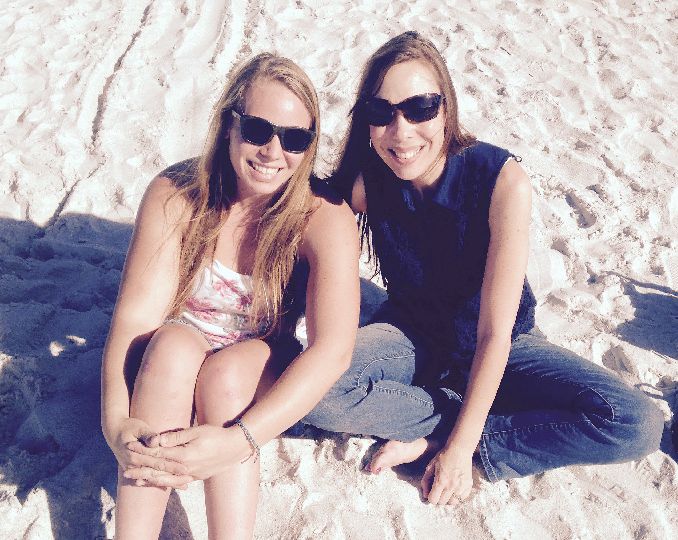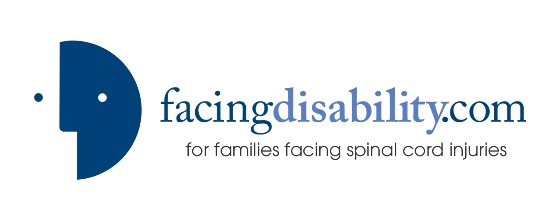
Limiting Beliefs
I sat at the airport. Waiting. They needed me. Time slowed as I scanned my memories searching for guidance on how to handle the situation. I came up with nothing. I was on my own. My children were in a terrible car accident while I was in Mexico. My son escaped with only a rash on his neck from the seatbelt. However, my ten-year-old daughter, Arielle, was in intensive care. We were told she had a bruise on her spinal cord. She couldn’t move her legs.
The Power of Thought
That memory from twelve years ago stands out because it was the first time I awakened to the power of my thoughts. My reaction upon hearing my daughter was in intensive care was to search all my prior knowledge in order to know how to behave–what to do. When I realized there was nothing I’d experienced to help me cope with what I faced I had to search deep within myself for the answers. It felt like standing in a forest alone with no path to follow. I had to create one. I had to make a choice. Was I going to allow my daughter’s paralysis to stop her from living a full life or was I going to teach her to accept herself, love herself, and live the life of her dreams?
Parenting
Thus started my plunge into books on the power of thought. My good friend, Elena, has a saying. “We are all products of our childhood.” She’s absolutely right. Most of my conservative friends have conservative children. Most of my liberal friends have liberal children. My friends who have raised their children with a religion have children who follow the rules of that religion or at least have a belief system that follows closely with that religion. A parent’s influence on a child is powerful. Most parents want their children to believe what they believe because it keeps the family intact and gives them a sense of commonality and security. However, as parents if we don’t encourage our children to explore outside our limited beliefs then we are not teaching our children to open their minds to observe and seek knowledge from outside the box we have placed them in. We are keeping them in a small roped off area amidst an expansive ocean of possibility. Just because we have thoughts/beliefs it does not make them true.
The danger in following a belief system without questioning is that it teaches us to follow our personal belief system without questioning. And this was the second a-ha moment for me during my weekend at the Chopra Center. WE DO NOT HAVE TO BELIEVE OUR THOUGHTS! Even though I spent years reading about the importance of positive thinking I always attributed it to goals or everyday occurrences. I never examined the limiting beliefs (thoughts) I held about myself. After all, I didn’t think of them as beliefs. I thought of them as who I was. These limiting beliefs can begin in childhood. They’re deep seeded much like the beliefs we are taught in our families about money, political views or religious views. They grow with us and affect our feelings and behavior.
My Personal Limiting Belief
When I talk to people I usually don’t have much to say. I enjoy listening more than talking. I’ve always been this way. When I was in middle and high school I became aware that my silence often made people uncomfortable. Comments were made like, “Does she speak?” I developed the belief that I’m awkward when meeting people and I’m not good in social situations because I make people uncomfortable. This belief led me to shy away from any social gathering unless it was with people I’d known for years.
Then the question was raised at the workshop. What if I didn’t believe this thought about myself? After all, it’s just a thought. We have 70,000 to 80,000 of them a day and they come and go. Why was I holding onto this one? Isn’t it a neurosis if we hold onto a thought and replay it in our minds over and over and over? What if I believed that I was fine in social situations because even if I listened more than spoke people would still get a sense of who I was? Suddenly, when I realized this, and then realized how long I’d been holding onto that belief about myself, there were tears. I had let a simple thought affect years of my life. Why had I done that to myself for so long? And just like that, I was free. I gave myself permission to be comfortable in social situations. The next morning when I sat down to breakfast with people I hardly knew, something that had always caused me great anxiety, I found I was calm. I was fine. I was amazed.
Our thoughts are powerful. Thoughts lead to feelings which lead to behaviors. Knowing that our thoughts are stories we tell ourselves gives us the ability to know we can let them go. We don’t have to cling to them and replay them for days, months or years. We don’t have to believe them especially if they damage us or others.
Examples of Limiting Beliefs
I can’t lose weight.
I’m not smart.
I’m not lovable.
I have a temper.
Limiting beliefs parents impose on their children
My child is bad.
My child is strong-willed or stubborn.
My child gets into trouble.
My child doesn’t listen.
My child isn’t good at ____
When I taught elementary school there were many times I heard parents say that their child wasn’t good at math because they weren’t. Parents decided for their children what they would be good and not good at. And then there was the time I sat and listened to two parents tell me that because their son had a difficult birth he was not able to perform in a classroom like the other students. Meanwhile, he had been performing above and beyond grade level classwork. When I showed his parents his work they were surprised. If his parents had let go of his birth story imagine what he would have been capable of before he even entered school.
To have the opportunity to examine what we think and how those thoughts/beliefs cause us to behave gives us the opportunity to choose how we want to live our life. When we don’t have limiting beliefs we have freedom. Thoughts come and go. If a thought is damaging you or others remember that it’s just a story. Let it go!
This post is the second of three about lessons I learned during my weekend at the Chopra Center.
Click here for my first post. Worry Is Not Love


